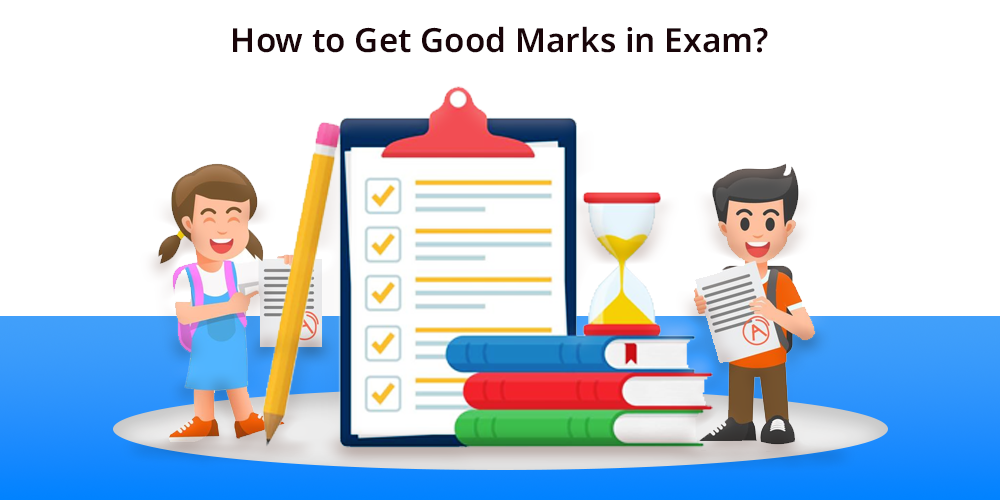
Students often stress out because of exams, but this is no longer necessary with proper guidelines to help you do well and achieve your high marks.
However, don’t forget that the efforts that you put in for the exams would matter if you never learn how to study efficiently.
But with a well planned approach and the using the most effective study techniques, learning and applying more information can be retained and applied much more effectively during the exam.
There are so many ways that planning ahead, managing your time, and healthy habit creation can really help.
In this blog we will go through some of the practical tips and techniques that will help you going into an exam with confidence and purpose.
With these done, you not only improve your exam performance but also feel in control and less anxious all the way through.
Contents
- Strategies to Get Good Marks in Exam
- 1. Start Early and Plan Ahead
- 2. Set Specific Goals for Each Study Session
- 3. Organize Your Study Space
- 4. Use Effective Study Techniques
- 5. Practice Past Papers and Mock Exams
- 6. Take Care of Your Health
- 7. Stay Positive and Motivated
- 8. Use Active Revision Techniques
- 9. Time Management During the Exam
- 10. Review Your Work
- Conclusion
Strategies to Get Good Marks in Exam
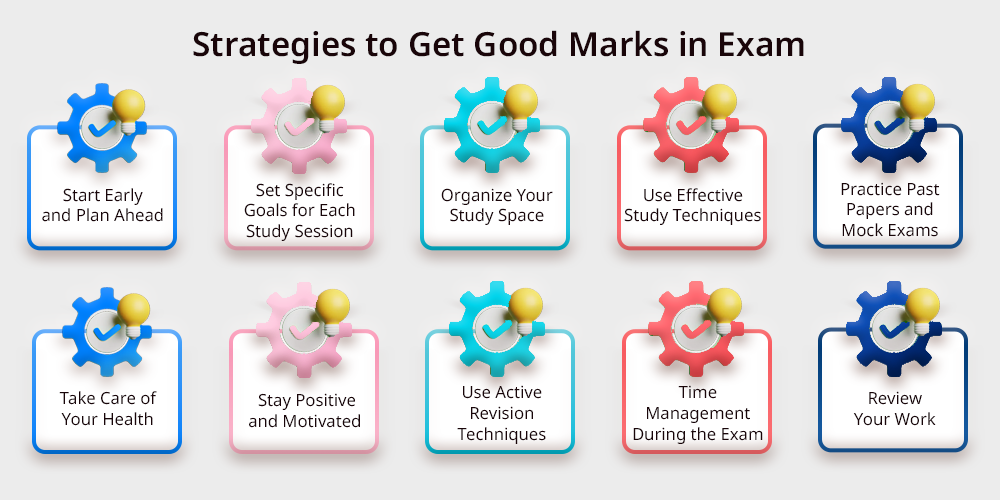
Success in exams develops because students apply systematic work habits together with proper preparation methods and relevant techniques. These multiple tactics will assist you in achieving success during your examinations:
1. Start Early and Plan Ahead
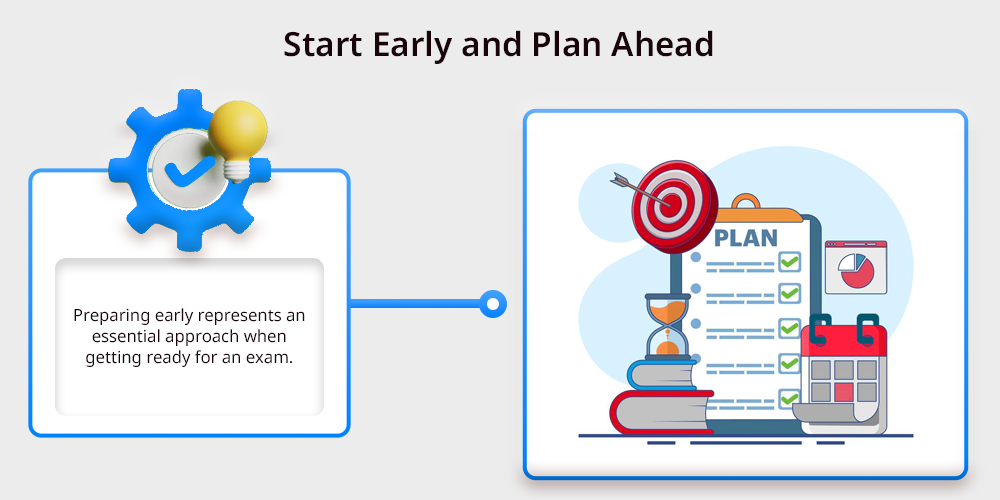
Preparing early represents an essential approach when getting ready for an exam. Surviving with last-minute memorization results in both increased anxiety and ineffective knowledge absorption.
Initiate your revision period early because this strategy permits comprehensive mastery of all topics.
Early start dates give you the advantage to split your study work over longer periods which both lowers stress and helps your memory function better.
Letting your study sessions begin with proper organization serves as your most important preparation tool.
Create smaller sections of your syllabus then designate definite periods for each subject. Your study plan will prevent you from scrambling at the end instead of being prepared in advance. Remember, consistency is key!
2. Set Specific Goals for Each Study Session
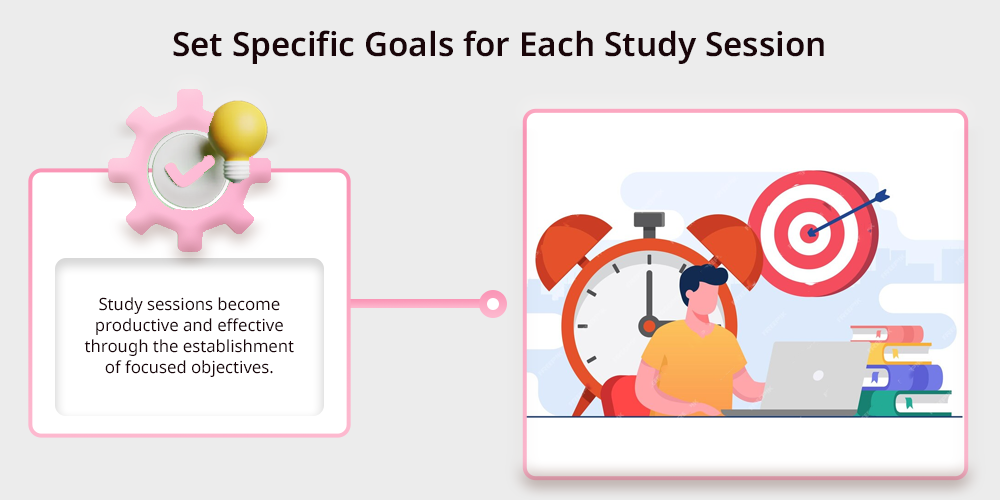
Your study sessions become productive and effective through the establishment of focused objectives because you will address all required content.
Instead of study for the exam establish concrete targets that you can measure. During a single session focus on comprehending chapter content and memorizing certain formulas along with finishing assigned practice tests.
3. Organize Your Study Space
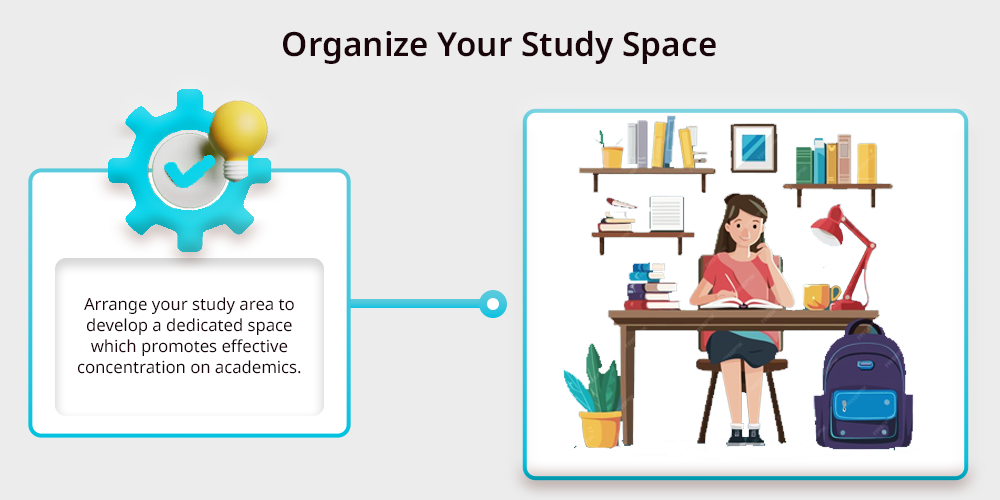
Your productivity along with your ability to concentrate will suffer when you study in an untidy and disorderly place.
Arrange your study area to develop a dedicated space which promotes effective concentration on academics.
The work area needs to stay clear while your study materials must be arranged neatly with everything placed within reach.
The research space should remain free from all distractions including cell phones and televisions.
To minimize disturbances from background sounds you should choose either a noise-canceling headphone system or listen to instrumental music.
The proper conditions for studying enable better factual retention and improved concentration levels.
4. Use Effective Study Techniques
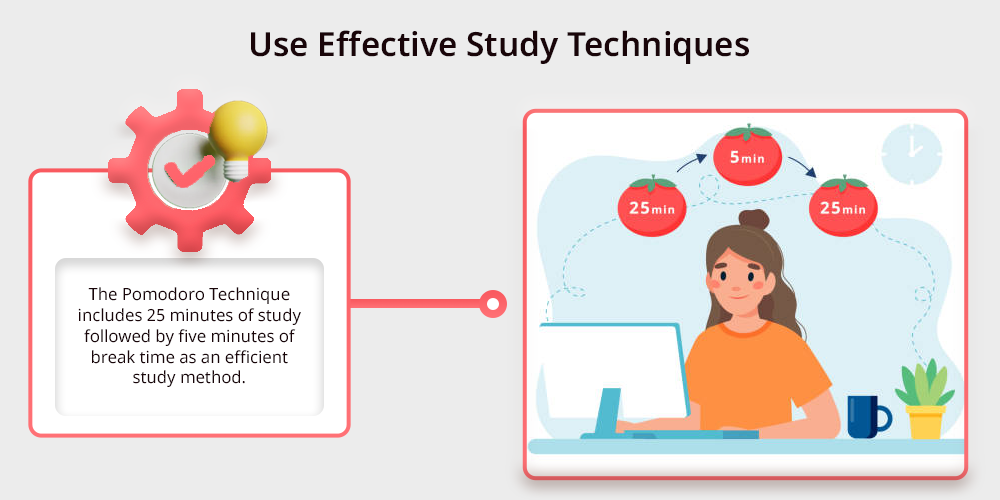
Understanding and memorizing material demands proper study techniques which perform an essential role in learning the curriculum.
The active learning techniques of summarizing material and drawing mind maps together with teaching others serve to strengthen your understanding.
Your engagement with educational materials improves both comprehension and memory retention of the studied content.
The Pomodoro Technique includes 25 minutes of study followed by five minutes of break time as an efficient study method. This method enables students to stay focused while avoiding feelings of being swamped.
5. Practice Past Papers and Mock Exams
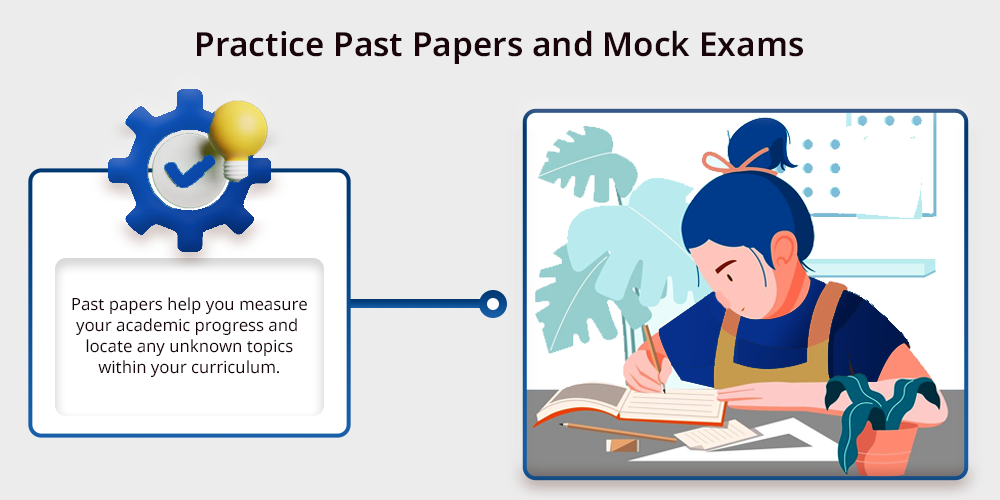
Past papers together with mock exams serve as essential preparation tools which help students perform better in their actual examination.
Past papers together with mock exams clearly demonstrate the structure of the assessment and question types that need to be answered within allocated time.
Past papers help you measure your academic progress and locate any unknown topics within your curriculum.
The experience helps students understand how to approach timed tests so they can control their time usage when taking the real examination.
Take note of your weak areas when completing past papers then study those subjects intensely before your examination.
6. Take Care of Your Health
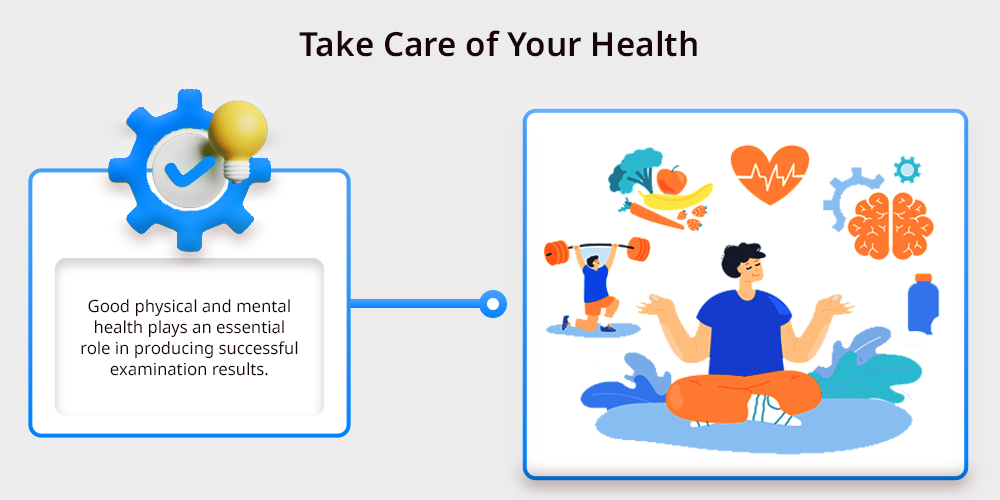
Good physical and mental health plays an essential role in producing successful examination results.
Your main focus during study time should be dedicated to rest and healthy eating along with daily physical activities.
Your attention span increases significantly when you have proper rest while physical movement enhances brain capabilities together with stress reduction.
Putting off studying at night before an exam never brings successful results. When you obtain sufficient sleep at night your brain effectively retains information which you will be able to recall throughout the exam.
Your performance benefits from consuming brain-boosting foods such as produce and grains alongside complete grains because they help enhance your attention and mental clarity.
7. Stay Positive and Motivated
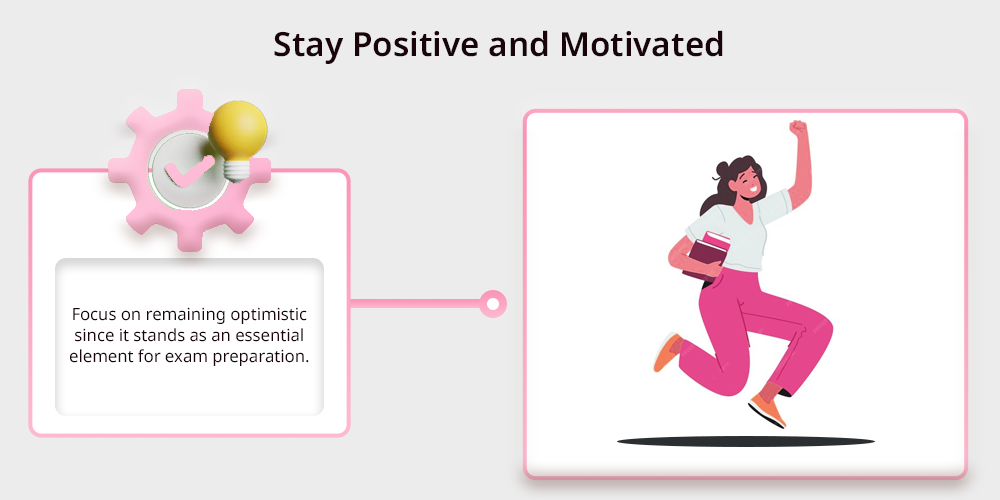
Focus on remaining optimistic since it stands as an essential element for exam preparation.
Negative thoughts diminish your capabilities at the same time positive outlooks boost your drive and minimize your stress levels.
You should remind yourself how much hard work you have accomplished to be prepared for the upcoming challenge.
When you feel demotivated you should take brief breaks by walking or speaking to friends or family members who will offer support.
Your educational success depends heavily on motivation since demanding times require it as your main driving force.
8. Use Active Revision Techniques
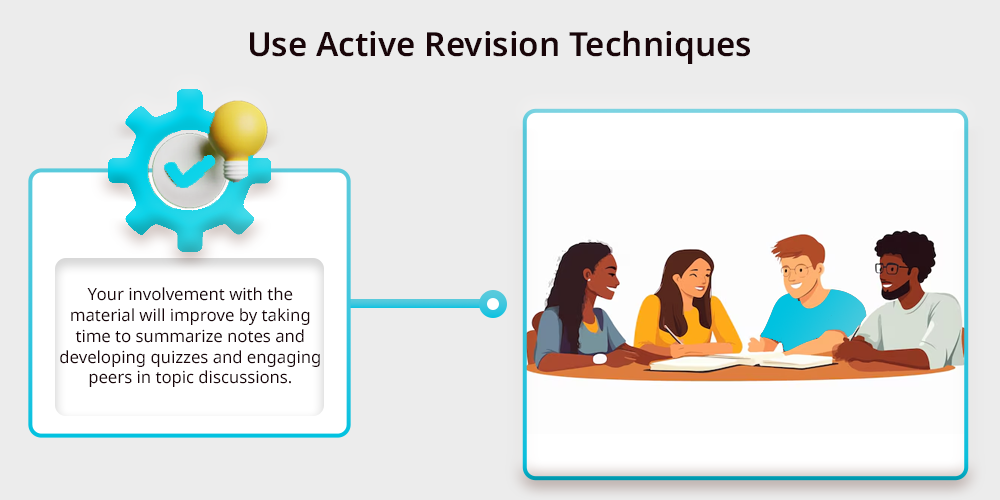
Simple reading involvement does not effectively help students maintain information.
Your involvement with the material will improve by taking time to summarize notes and developing quizzes and engaging peers in topic discussions. Your understanding and memory of information improve as you increase your contact with the content.
The learning process benefits from spaced repetition since students review material through increasingly longer time periods.
9. Time Management During the Exam
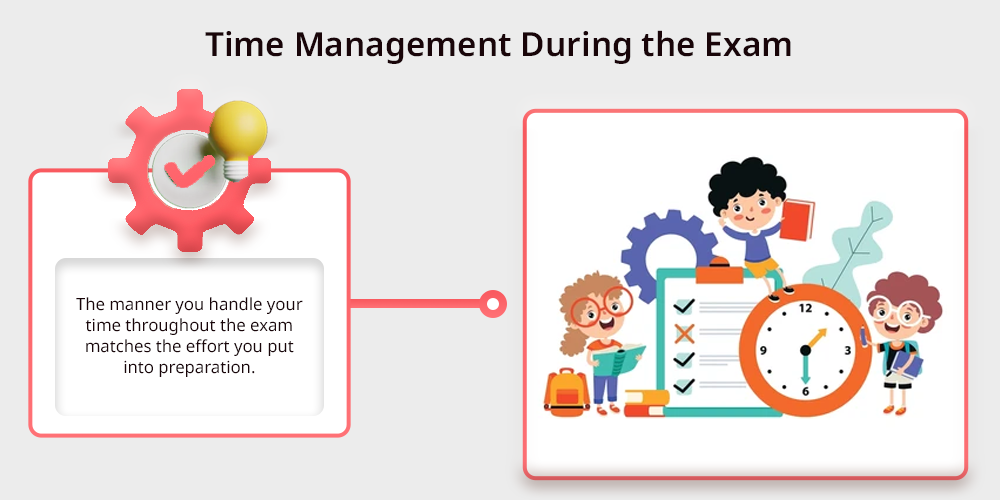
The manner you handle your time throughout the exam matches the effort you put into preparation.
Devote a brief period before the start to review the paper so you can effectively plan your time distribution.
To maximize your exam performance plan enough time for each question section and set aside final minutes for checking your responses.
Move forward from challenging questions since time expenditure on them should be limited. Work on the following question before returning to deal with it once more.
Your performance in the test will improve and prevent hasty mistakes when you use time wisely.
10. Review Your Work
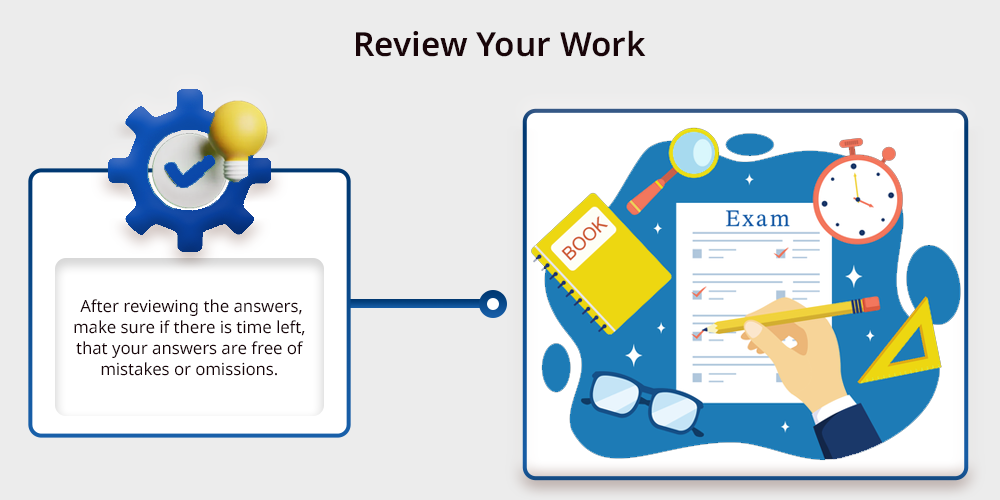
After you have finished the exam itself don’t submit it hastily. After reviewing the answers, make sure if there is time left, that your answers are free of mistakes or omissions.
It might bring to your attention errors you might have overlooked that will also cost you precious marks. Watch for small details such as spelling, grammar and calculations.
Secondly, it’s important to see that you have answered all parts of the question. The fact of the matter is sometimes in the rush, students forget to address specific parts of a question simply, losing marks.
Conclusion
Finally, to take good marks in exam, you should plan ahead carefully, study discipline and use the effective technique.
So from the outset, these five crucial steps help you to succeed in exams. Do not forget to take care of your health, stay optimistic, and time management during the exam.
Using these techniques, you will prepare yourself for an exam perfectly and raise the probability of getting excellent results.
You cannot expect success overnight, You have to work consistently with willpower / mindset and you will achieve the marks you desire.
Good luck with your exams!
